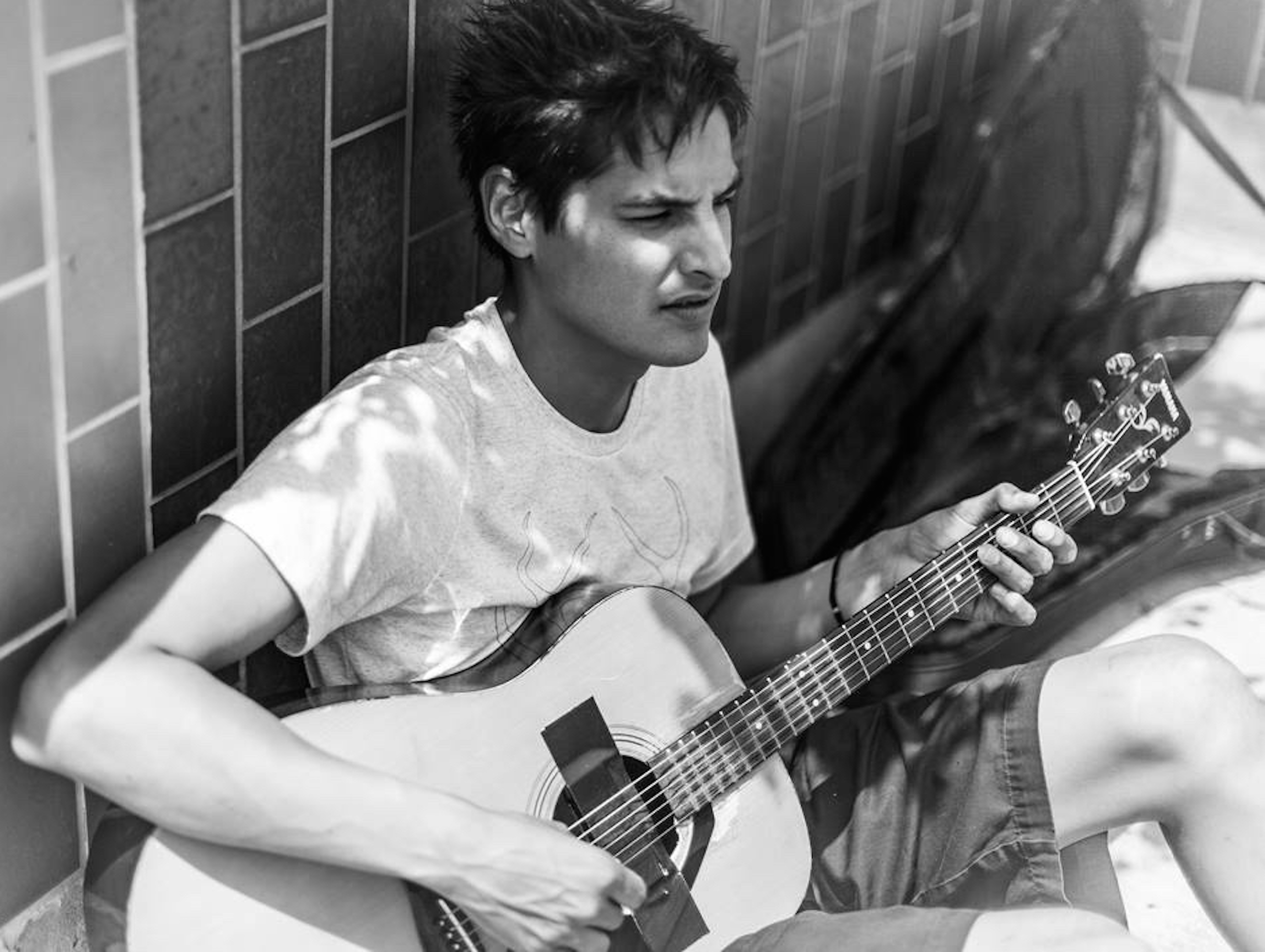Indigenous Artists Tell Us What They Think About Land Acknowledgements
Credit to Author: Graham Isador| Date: Fri, 09 Aug 2019 19:24:16 +0000
In the past few years if you’ve attended a progressive event—especially an arts event—chances are that it started with a Land Acknowledgment. Someone at the front of the room address the crowd, letting them know that the concert, book launch, play, or public gathering is taking place on Indigenous land. The intention of the statement is to recognize the unique relationship between Indigenous people and their traditional territories.
As a white guy I’ve been grateful for the practice. Growing up the extent of my education on Indigenous people of Canada was limited to a book report on Louis Riel and a few weeks of ninth grade history. Most of the context for the land’s traditional caretakers was framed by their relationship to the Hudson’s Bay Company. The better Land Acknowledgments I’ve witnessed have served as a jumping off point for learning about both the brutal ways Canada has treated its Indigenous people, and the vibrant cultures that have persevered despite that brutality. Having to perform them myself highlighted how little I knew about this part of my country’s fabric. I tried my best to say the words with respect and context. But not all the Land Acknowledgments I’ve seen have been that successful.
Earlier this year Pride Toronto faced criticism when they posted a written Land Acknowledgment that failed to recognize Indigenous people at all, instead suggesting readers introduce themselves spiritually and build a relationship with Mother Earth. Seeing the sign on Twitter reminded me of people shoehorning the practice into the same categories as sponsor thank yous, corporate shoutouts, and warnings about flash photography. It got me thinking about the practice in general. What was the best way to approach Land Acknowledgments? Who were they for? Most importantly, what did Indigenous people think of the practice?
Recently I asked a handful of Indigenous creators to walk me through their thoughts on Land Acknowledgments.
It’s literally reading names off a piece of paper
Syreeta Hector, dancer, Black Ballerina

I have heard so many Land Acknowledgments that say the exact same thing. It’s not from the artist or the institution. It’s not from a genuine place. It’s not an authentic acknowledgement, even if the idea of an authentic acknowledgment is problematic. It’s literally reading names off a piece of paper.
If I’m going to see a show I would prefer that the artist says something about how they feel about the practice of Land Acknowledgments, and then acknowledge the land we’re on. Contextualize things. For me it’s critical to acknowledge not only the land we’re performing on but also my ancestors. My Miꞌkmaq ancestors in Nova Scotia were told to forget their identity. What does this mean for us to be talking about the original caretakers of the land? If you were able to tell them about the future I don’t think they could imagine that any attempts at reconciliation would ever happen.
That’s important too: To acknowledge where we’re at in 2019, what’s being done and what needs to be done. In theatre and dance Land Acknowledgements often start the show. The question is: does it go in one ear and out the other? Does it stick with you? Does is mean something and, if so, why?
It felt like a eulogy: We were there, now we’re not, and now it’s yours
Falen Johnson, Secret Life of Canada
Indigenous people who work in [Toronto] arts have a lot of experience with Land Acknowledgments. People think because we’re Indigenous that we can’t fuck it up or we can’t be wrong, or we have the answers. But that’s not necessarily true. I also wonder if striving for the right answer is even the point of a Land Acknowledgment.
When I think about the practice there is something I try and hold on to. If it doesn’t feel like work then you’re probably not doing it right. Acknowledgment is an active thing. You need to be situated in that acknowledgment or it’s lip service. If people don’t know what they’re doing or why why are doing it, then my suggestion is,: don’t do it.
I worked a couple of years ago with artist Cole Alvis at the Indigenous Performing Arts Alliance. There was money to do research around Land Acknowledgements and what the hell was going on in the city, because a couple of years ago they became a laundry list of everyone trying not to fuck it up. So we ooked at the four nations most commonly recognized in Toronto Land Acknowledgments and then went to four communities where those people actually live. We chatted to the people there about the practice and there was a huge disconnect for them. A lot of people in the communities said they didn’t like Land Acknowledgments. It felt like a eulogy: We were there, now we’re not, and now it’s yours. That sentiment came up a lot. But these people are alive. They are artists. And maybe the next step for arts institutions in acknowledging these people is actually hiring them for their art.
Land Acknowledgements smell like condescending bullshit to me
Cliff Cardinal, poet/performer

We should think about the land. We should think about the Earth. We should think about preserving our few little degrees of habitable human temperature on this planet. Bill Nye says the world is coming to an end and I believe him. Yet Land Acknowledgements smell like condescending bullshit to me. Here’s why: Attaching an Indigenous identity to the Land Acknowledgement deters the conversation from what we can all do together and instead to the commiseration of a lost culture. We are not lost. I don’t want to think about that history every time I see a show and I don’t want to listen to an apology from an artistic director who is not in any way responsible.
Yes, there are Indigenous people who were dealt absolutely brutal cards—so are there white people. To say that a person living today who has white skin is morally responsible for a geo-political inequity is a vastly short-sighted view of history. There were huge evolutionary forces of human momentum travelling in all directions and a few bad gatekeepers (of every culture), but most of us are just along for the ride. And what a thrilling ride it is. We are all privileged just to take a few breaths of this existence. Toronto is nestled in the basin of the Great Lakes. Water is life. Let’s think about the water, not our differences. Bill Nye could be wrong.
They make me really nervous
Frances Koncan, journalist
The first time I heard a Land Acknowledgement was in 2015 at the Banff Centre at an Indigenous writer’s lab. That same year I heard them again in Vancouver and Toronto. Over the next few years they started to pop up here in Winnipeg, but while it’s expected in those places, it’s still very irregular and inconsistent here. At first I was really confused, largely because I didn’t know the history of the land outside what I had learned in school, which wasn’t much.
To this day, they make me really nervous. Sometimes you’ll be sitting next to someone who will make a snide comment or sigh or roll their eyes and it can really affect your night. Sometimes it feels like it shines a spotlight on you, especially when you’re one of the few Indigenous people in the room. Sometimes it feels performative and exclusively to alleviate guilt. Sometimes I don’t have the energy for it.
But sometimes it is very sincere and well-spoken and very beautiful, and I feel grateful and included and seen. In my own experience, my fatal flaw as an ally is whenever I feel my ego taking control. Humility goes out the window and my insecurities make it hard to listen to others and be sensitive to what they’re saying. Listening is major. It seems like a skill we’ve all really lost.
It’s important that settlers understand the history of the land we live, work, play, love on
Yolanda Bonnell, actor/playwright
I actually had not heard a Land Acknowledgement until after I moved to Tkarón:to in 2011. And even then, I feel like it took a few years before I heard one. I have a strong memory of reading one in a Buddies in Bad Times handbill, while I was in theatre school and feeling excited because it was the first time I had seen one printed. They slowly trickled in around that time, gaining momentum. The act of acknowledging the land that you are on and the nations that exist/ed in the area is incredibly important. It’s a reminder that we, as humans, are intrinsically linked to the land—the aki, our Earth—and always have been. And to recognize and remember that as settlers, you are guests on the land.
How are we existing with each other? With the land? How can we do better by learning from something like the Wampum Belt Covenant? It’s important that settlers and even Indigenous folks understand the history of the land we live, work, play, love on. The history includes the nations of those who have been protectors, caretakers—folks that existed here for thousands of years.
The “acknowledgement” from Toronto Pride was a disappointment. We can’t erase the names of Indigenous nations. We’ve been getting erased for years and now that there is finally some acknowledgement, we’re being erased again. Yes, it’s important to connect and understand your relationship with the land you stand on but our ancestors also need to be named.
It feels like many institutions are checking their box. It’s on their to-do list, which negates the point completely. Name the nations, but also say what your relationship is to the land you’re on. What’s the history? It really bothers me when it’s recorded, when it feels like it was a task, when it’s impersonal, when it’s looped in with announcements. It feels disingenuous. Get some consultation, but speak to actual Indigenous consultants—understand that not every Indigenous person is there to give you labour and is interested in providing this work. Pay your consultants; do the research. Stop asking your Indigenous friends for free labour.
These responses have been edited for length and clarity.
Graham Isador is on Twitter. @presgang